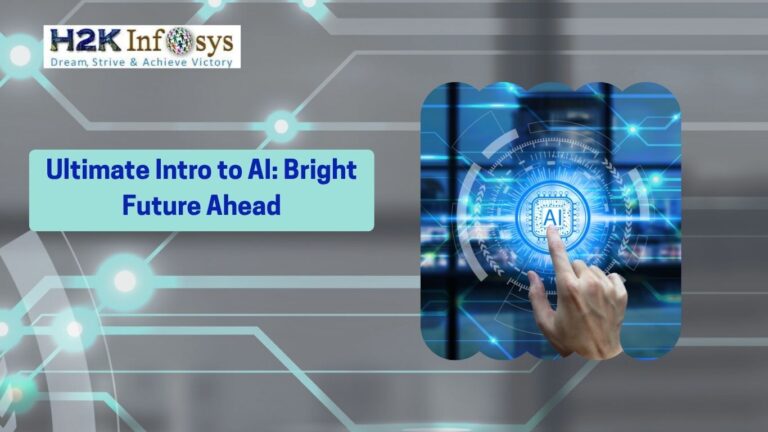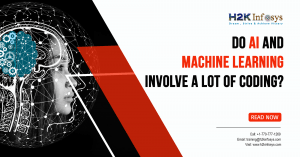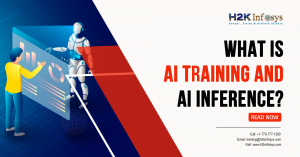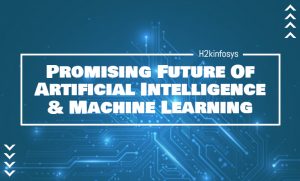Introduction
From voice assistants like Siri and Alexa to self-driving cars and personalized shopping recommendations, Artificial Intelligence (AI) is no longer futuristic, it’s now. Businesses, governments, and startups alike are heavily investing in AI technologies to improve operations, enhance productivity, and revolutionize user experiences. If you’ve ever wondered where to begin, this Intro to AI blog is the perfect first step toward understanding this transformative field.
In today’s fast-paced tech world, enrolling in an Artificial Intelligence course online or pursuing an AI course certification is not just beneficial, it’s essential. AI isn’t limited to coding or engineering roles. It’s integrated into marketing, finance, customer support, supply chains, and more. This guide aims to give you a comprehensive, real-world understanding of what AI is, why it matters, and how you can become part of its exciting future.
What is Artificial Intelligence?
Artificial Intelligence is a branch of computer science focused on building systems capable of performing tasks that typically require human intelligence. These tasks include:
- Learning from data (Machine Learning)
- Problem-solving and decision-making
- Language processing (Natural Language Processing)
- Visual perception (Computer Vision)
- Speech recognition and generation
When we say Intro to AI, we’re not just referring to definitions. We’re talking about the ability to solve real-world challenges with smart systems that adapt, learn, and perform autonomously.
Key AI Technologies You Should Know
To grasp the Intro to AI in a meaningful way, let’s break down the core technologies that power AI systems:

1. Machine Learning (ML)
ML allows systems to automatically learn and improve from experience. Examples include:
- Email spam filtering
- Fraud detection in banking
- Predictive text input
2. Deep Learning
A subset of ML inspired by the human brain. Common in:
- Facial recognition
- Language translation
- Autonomous vehicles
3. Neural Networks
Neural networks are the foundation of deep learning and mimic the way the human brain processes information. They consist of layers of interconnected nodes (neurons) that process and learn from large volumes of data. Applications include:
- Image classification
- Voice recognition
- Predictive analytics
4. Natural Language Processing (NLP)
NLP is what powers AI to understand and generate human language. You’ll see this in:
- Chatbots
- Voice assistants
- Sentiment analysis tools
5. Computer Vision
This tech enables machines to “see” and interpret visual data. Used in:
- Medical imaging
- Quality control in manufacturing
- Traffic and surveillance systems
6. Cognitive Computing
Cognitive computing attempts to simulate human thought processes in a computerized model. These systems use AI, ML, NLP, and reasoning to solve complex problems. Examples include:
- AI-based legal research tools
- Advanced decision support systems in healthcare
- Personalized learning environments
The Intro to AI By the end of any solid Artificial Intelligence course online, you’ll be able to recognize, use, and even build systems using these technologies.
Real-World Applications of AI
Understanding the Intro to AI becomes even more exciting when you see its applications across sectors:
Healthcare
- AI-driven diagnostics (detecting tumors, analyzing X-rays)
- Personalized treatment plans
- Predictive analytics for patient care
Finance
- Fraud detection
- Algorithmic trading
- Credit scoring and loan predictions
Retail
- Personalized product recommendations
- Inventory and demand forecasting
- Virtual shopping assistants
Transportation
- Self-driving vehicles
- Traffic management systems
- Predictive maintenance for logistics fleets
An Intro to AI course certification gives you the know-how to contribute meaningfully to these innovations, opening doors to impactful roles.
Why You Should Enroll in an Artificial Intelligence Course Online
Intro to AI Here’s where the learning curve meets the growth curve. A quality Artificial Intelligence certification online offers:
1. Flexibility
Study at your own pace, from anywhere. Perfect for working professionals and students.
2. Real-World Projects
Courses often include hands-on projects like:
- Building a chatbot using NLP
- Creating a predictive model with machine learning
- Implementing computer vision using Python and OpenCV
3. Skill-Based Learning
Gain mastery in tools and languages such as:
- Python, TensorFlow, Keras
- Pandas, Scikit-learn, NumPy
- Jupyter Notebooks for rapid prototyping
4. Career Advancement
Whether you’re aiming to switch careers or elevate your current role, an AI course certification signals credibility and capability.
What to Expect in a Beginner-Friendly AI Certification Course
If you’re diving into an Intro to AI, a structured course typically includes:
1. Basics of AI and Machine Learning
- Supervised, unsupervised, and reinforcement learning
- Algorithms: decision trees, neural networks, clustering
2. Programming for AI
- Python basics
- Data manipulation and preprocessing
- Exploratory data analysis
3. Model Training and Evaluation
- Cross-validation
- Accuracy metrics (Precision, Recall, F1 Score)
- Hyperparameter tuning
4. Capstone Projects
End-to-end projects like:
- Predicting customer churn
- Creating a recommendation engine
- Analyzing social media sentiments
Completing an Artificial intelligence course online gives you both the theory and hands-on exposure needed for real-world readiness.
Future Trends in AI You Should Know
An Intro to AI is incomplete without understanding where the field is headed. Let’s take a look:
1. Generative AI
From ChatGPT to image generation tools, generative AI is changing content creation, marketing, and design forever.
2. AI Ethics and Explainability
With growing concerns over AI bias and accountability, future professionals must understand the ethical use of AI.
3. AI + IoT (Internet of Things)
Smart homes, wearable tech, and connected cities will rely heavily on AI for decision-making and automation.
4. AI in Education
Intelligent tutoring systems and AI-driven personalized learning platforms are redefining the classroom.
Pursuing an AI course certification ensures you’re not just catching up but staying ahead of the innovation curve.
Long-Term Career Benefits of Learning AI
Here’s why your Intro to AI could be a lifelong asset:
1. High-Paying Jobs
Roles like AI Engineer, Data Scientist, Machine Learning Engineer, and NLP Specialist are consistently among the top-paying tech jobs.
2. Cross-Industry Demand
AI is used in manufacturing, agriculture, cybersecurity, telecom, insurance, and more.
3. Career Growth and Stability
Unlike many tech trends, AI is not fading. It’s foundational. According to the World Economic Forum, AI will create 97 million new jobs by 2025.
4. Leadership Opportunities
AI literacy sets you apart. Whether you’re in management, strategy, or product roles, understanding AI elevates your decision-making.
Visual Overview: AI in Action
Here’s a simplified example of AI architecture used in a real-world recommendation engine:
pythonCopyEditimport pandas as pd
from sklearn.model_selection import train_test_split
from sklearn.ensemble import RandomForestClassifier
# Sample data
data = pd.read_csv('user_behavior.csv')
# Feature selection
X = data[['age', 'browsing_time', 'click_rate']]
y = data['purchase']
# Train/test split
X_train, X_test, y_train, y_test = train_test_split(X, y, test_size=0.3)
# Model
model = RandomForestClassifier()
model.fit(X_train, y_train)
# Prediction
predictions = model.predict(X_test)
This simple workflow illustrates how AI decisions are data-driven, and learning to code them is part of every robust Artificial intelligence course online.
Tips for Getting Started with AI
Ready to take your first step in AI? Follow this simple guide:
- Clarify Your Goals – Do you want to build models? Interpret data? Improve business workflows?
- Pick the Right Course – Choose an Artificial Intelligence certification online that aligns with your learning style.
- Practice, Don’t Memorize – Get hands-on with projects and datasets.
- Stay Updated – Follow AI trends, news, and academic papers.
- Join a Community – Participate in AI meetups, forums, and online groups to share knowledge and grow.
Recap: Key Takeaways from This Intro to AI
- Intro to AI is your gateway to a high-impact, future-ready career.
- Real-world AI spans healthcare, finance, retail, and beyond.
- Enrolling in an Artificial intelligence course online gives you the flexibility, structure, and skills you need.
- An AI course certification improves your credibility and opens up career opportunities.
- The future of AI is diverse, promising, and accessible to those who are ready to learn.
Conclusion
AI is no longer optional, it’s essential. Whether you’re an aspiring developer, data analyst, or business leader, the right Intro to AI can reshape your professional trajectory. Start learning, start building, and start innovating.
Ready to turn your curiosity into career success? Enroll now with H2K Infosys to explore AI hands-on and unlock future-ready skills.


























